School of thought
NGO is taking a more considered, innovative and relevant approach to education in rural China, Fang Aiqing reports.

In Xinglong village in Zheng'an county, Southwest China's Guizhou province, around 30 urban students are attending a small primary school, attracted by its wholesome curriculum system that makes learning fun and a life rooted in the soil enjoyable.
Tianzige Xinglong Experimental Primary School offers a localized, humanistic education that Xiao Shijian, the founder of the NGO Tianzige, has been exploring and promoting since the organization took over the school in 2017.
The school, at the foot of Tianlou Mountain and not far from Furong River, is surrounded by layers of terraces, pine woods and bamboo forests.
At this time in spring, the mountains are often covered with cloud and mist. The trees near the paddy field are reflected in the natural spring water, which is populated with fish, and occasionally, ducks.
The school now has 85 students and 14 teachers.
Every morning, the students take turns to do some farm work, from planting vegetables and removing weeds, to building the henhouse and feeding the poultry.
They grow a dozen vegetables including cabbage, Chinese chives and turnip, and sell the harvest to the teachers. The revenue and expenditure is made public every month.
They also learn to create handicrafts, which they are allowed to sell, and the income is invested into school development and investigative study.
Taking advantage of the local environment, the students have mixed-age, project-based courses, which integrate multidisciplinary knowledge that leverages the surrounding natural environment and the local culture and history.
They involve topics that not only cover local flora and fauna, geography, agriculture and dwelling styles, but also family history, conflict resolution and how to get along with their parents, who work in faraway cities.
For investigative study sessions, the students will complete their research papers or experiment reports, make presentations in front of the whole school and participate in discussions.
Former research topics include subjects such as "moldy conditions of bitten apples in different environments", "why dogs greet their owners" and "how to stop boys' dormitories from being smelly".
Soon after the outbreak of COVID-19, using materials at hand, the teachers and students built a simulated fever clinic and a makeshift hospital and played the roles of patients and doctors to not only learn about the virus and the various prevention measures, but also to experience the anxiety and the goodness of people.
By searching for information online and comparing the statistics, they also learned mathematics and geography.
The landmark of the school, Liren Hall, is a Guizhou-style structure built from scrap wood collected in the village. Some villagers say the stone bases of its pillars have a 200-year history.
The teachers like to tell stories about the past and use the cultural relics as props to help the children feel connected to history, the society of their hometown and to enjoy learning at school.
The hall is where the teachers and students gather once a week to make proposals, debate and vote to decide the school's public affairs. The session is to cultivate their critical thinking, awareness of problems, eloquence and how to behave in public.
Despite these diversified courses occupying half of the curriculum, the students' performance in Chinese language, mathematics, English and PE classes is also improving.
They led those from other village primary schools in the county's unified examinations last year and continue to narrow the gap with students from urban schools, according to Feng Qiwei, a member of the county committee of the Chinese People's Political Consultative Conference, who has been supporting Tianzige's work and providing counsel for over a decade.
The school attaches particular importance to computer courses, such as coding, to help the students connect with the outside world and prepare them for future challenges.
Xiao was enrolled at Peking University in 1983 and was among the first undergraduates of the sociology department.
In the first year of college, the teachers took the students to a rural Mosuo community living by Lugu Lake in Southwest China's Yunnan province. It required a three-day train journey to get there-definitely an unforgettable journey for a 19-year-old freshman, who was born and grew up in Beijing.
They lived with the locals for over two months, carrying out an anthropological study. It was the first time Xiao had received in-depth knowledge about rural China and was shocked by the striking contrast between the city and the countryside.
After four years of sociological training, she was able to more keenly pay attention to rural problems.
"I was lucky enough to learn and build a real connection with the local society, which was a rare experience for a college student," Xiao says, adding that her educational background has largely influenced the location-based education she is exploring.
After graduation, she worked at the former rural development research center of the State Council, which was closed in December 1989, before studying for her master's degree in Denmark.
She later became CEO of Greater China for Klipsch Group, a US audio equipment manufacturer.
In 2010, a trip to Shangri-La, Yunnan, made her realize that some of the same problems that she identified during her field research in 1984, were still present in rural China. It urged her to initiate Tianzige and sponsor rural students, especially in Guizhou, to go to school.
At that time, per capita GDP of Guizhou was one of the lowest among the provincial administrative regions, and charity groups paid far less attention to the province than to rural areas in Yunnan and Sichuan provinces.
Feng, who volunteered to lead the way and translate the dialects when Tianzige visited potential recipients, was impressed by the organization repeatedly modifying the questionnaire and doing meticulous background research-from family conditions, personal willingness to learning potential-while showing respect to the students and protecting their privacy.
Feng himself was inspired and empathetic. He registered a local volunteer association in 2014 to normalize his charity activities that often involved visits and background research for other NGOs.
However, among the more than 1,700 underprivileged high school students sponsored by Tianzige from 2010-17, less than 10 percent made their way to college, and even those who did had difficulty adapting to a career and life in the city, according to Xiao. Despite this, they still lost their attachment to the countryside.
Xiao then realized that the education rural students receive barely has any connection with their life. The textbooks, learning methods, selective systems and even the goal itself-striving for further education and a promising career-are all city-oriented.
It resulted in a lack of motivation for both the teachers and students, alike. Although Tianzige had been sending volunteer teachers to remote schools, improvement was limited.
"Rural education should have its roots in the soil instead of simply being transplanted from the city. The way out of the cycle is to create an education exclusively belonging to the countryside," Xiao says.
In December 2016, Tianzige signed an agreement with Zheng'an county's education bureau and settled in the primary school. The bureau provides funds while Tianzige takes charge of the school's operation and sets the curriculum.
The teaching methods it applies are like those found in top urban schools, but are still rare in rural education, and it has managed to dig out abundant local resources for education.
When Tianzige took over, the school had around 70 students, with two-thirds of them being "left-behind" children and about one-third coming from divorced families. The school has a bathroom with hot water, three daily meals and a reading room to make them feel at home and helps students develop good personal hygiene habits.
Many of the graduates from the school say they can feel the teachers' affection for them.
A girl, now in first year of senior high school, recently told Xiao that she has learned to be polite and inclusive. Being average with school work, she considered taking vocational education. Xiao says she feels relieved that her students are actively planning their future on their own.
Ren Xifu, a student at the school, used to be unruly and disruptive in the classroom, running about, gossiping loudly and even hitting classmates. However, he has since become one of the most attentive students, regularly raising hand to answer questions and always willing to offer a helping hand, as well as displaying the best English proficiency in his class and composing a collection of poems.
Since 2020, Tianzige has been promoting its education method and part of the curriculum to 45 village primary schools, serving altogether 3,600 children, while also developing teaching plans and instruction manuals and training the teachers on how to implement alternative teaching methods.
To further her educational experiment, Xiao is preparing to take over another primary school with around 200 students in the province's Bike village in Zhenfeng county.
While Tianzige's volunteers make up the majority of the teachers at Xinglong school, Xiao, born in 1964, prefers to let local teachers take the lead at the new school.
The biggest challenge is to persuade local teachers to stay on and adjust their own mindset to accept a demanding method that greatly adds to their workload. It's a lot easier for the younger generation of teachers, Feng says.
Xiao's positive, though, especially when seeing the teachers at the Bike school lead the students in reading aloud every morning within a month of her arrival. They never did that before.
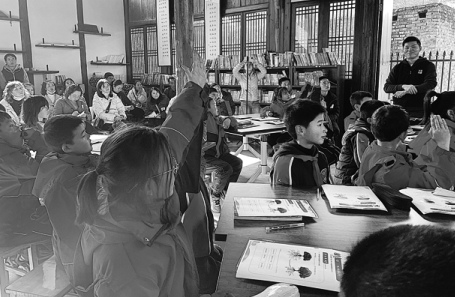
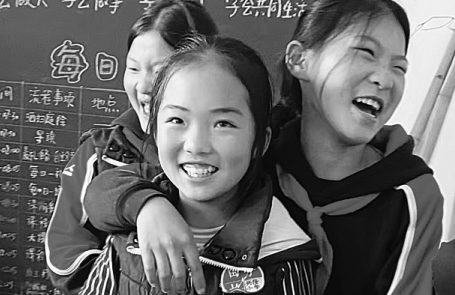
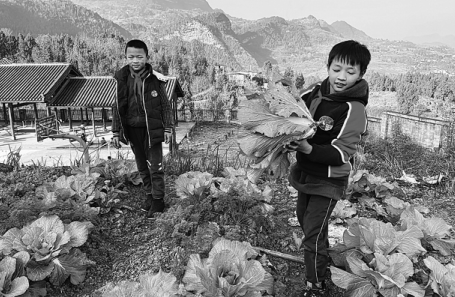
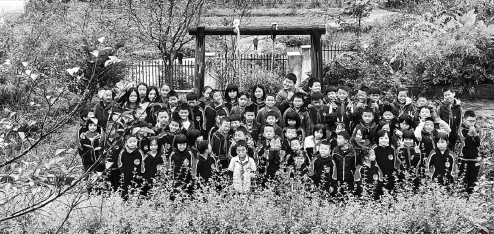
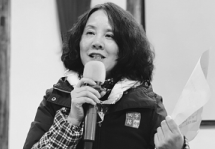
Today's Top News
- China's industrial profits down 1.8% in H1
- Thailand responds to Trump's ceasefire call
- Recall vote shows DPP's manipulation runs against Taiwan people's will: mainland spokesperson
- Top DPRK leader visits China-DPRK Friendship Tower
- China proposes global cooperation body on AI
- Scholars propose inclusive human rights framework






























